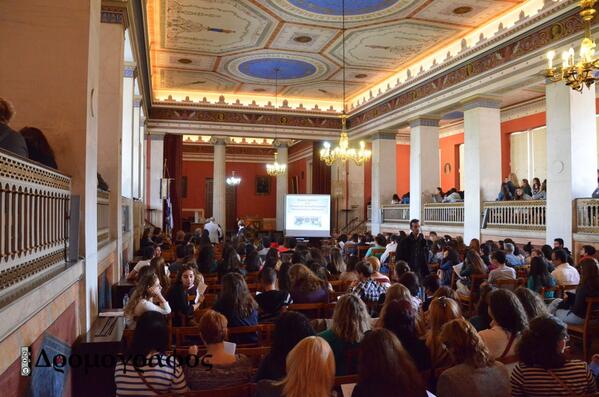The law establishing changes in university and tertiary education more generally – installing a special police force on campuses and other provisions stirred tensions and reactions – was passed into law by the ruling majority which extolled it in Parliament.
We must now see the provisions of the law in practice and whether they will improve the operation of universities and restore the freedom to disseminate ideas which the lawmakers who passed the bill believe has been lost.
No one doubts that Greek universities are at times besieged by the activity of minorities, by extra-university groups, and by the admission of students without measure and appropriate evaluation.
The climate of no limits that prevailed for decades marred the image of Greek universities, slowed down their modernisation, and limited their capabilities.
The government’s reform is neither sufficient nor able to change the flow of events.
That is clear from the one-sided nature of the provisions and from the character of the changes passed.
Structurally it did not change the operation of universities. It does not change their organisation in the long run.
It also does not endow tertiary education with funds and mechanisms that can support research and link it to production and the economy more generally.
Political conditions and social needs allowed for a radical reform that could boost tertiary education.
An independent observer feels that the changes promoted are more than anything else designed to serve the grouping of political forces and to highlight political and ideological differences between competing parties.
No one will say so publicly but the common conviction is that through these changes there is an effort to set up a new arena for political confrontation and to highlight the different views in Greek society ahead of the next election, whenever it may be held.
One can say this is par for the course but it is not the overarching issue nor is it what the country needs right now.
There have been in the past specific education reforms that made history and were registered in the consciousness of citizens because they were linked to the real needs and real yearnings of the Greek people.
The first major education reform, passed by Eleftherios Venizelos, was linked to the use of the demotic Greek language and involved top divs in the Greek intellectual world in making education a public good with access for all Greeks.
During Venizelos’ second four-year term more schools were built than in any other time in the history of the Modern Greek state.
The state-run education system brought waves of creativity to Greek society and was thus literally embraced by the Greek people.
In the second major education reform, in 1964, Georgios Papandreou and Evangelos Papanoutsos led the way in abolishing tuition and opened the gates of universities for all Greek children. It created an environment of equal opportunity and an unprecedented social mobility in Greece.
The structure of society today is determined largely by that great reform and the opportunities it offered the poorer strata to become educated and improve their condition in life.
To be honest one cannot see such elements in the government’s new law.
Those who monitor international currents in education systems believe that the truly revolutionary reform in universities today is Research and Development.
All major universities have linked research to development and that determines their course and progress but there is not even a word about that in Education Minister Niki Kerameos’ law!





